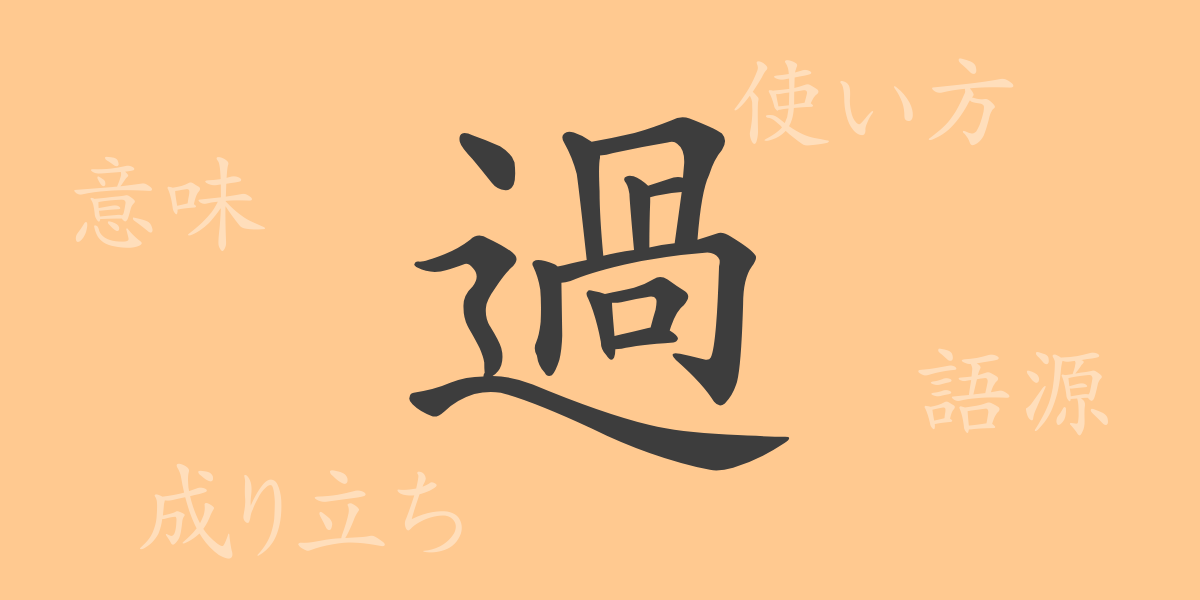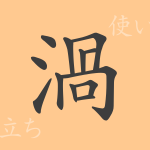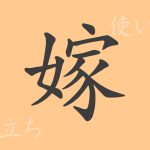The key to the rich expressiveness of the Japanese language lies in the deep meanings contained within single kanji characters. The commonly used kanji “過” (Ka) is closely related to our daily lives and culture, and it is used to express a wide range of emotions and actions. This article delves into the origins, meanings, usage, and readings of “過” (Ka), as well as idioms and phrases that include this character, revealing its full scope.
Origins of Kanji “過” (Ka)
The kanji “過” (Ka) has its origins in ancient Chinese oracle bone script. It originally derived from a pictograph that meant “victory chant” and was formed by combining the “footsteps” radical “辵” (Snnyou) with the phonetic component “咼” (Ka). The concept of “exceeding” time or space became the fundamental meaning of “過” (か), and it came to express ideas such as “passing by” and “mistake” in various contexts.
Meaning and Usage of Kanji “過” (Ka)
“過” (Ka) can mean “passing by,” “mistake,” “exceed,” or “spend time.” It is used to express when time, place, or quantity “exceeds the appropriate range.” It is also used to indicate something done incorrectly, as in negligence or a mistake.
Readings, Stroke Count, and Radical of Kanji “過” (Ka)
The kanji “過” (Ka) reflects its richness in form and meaning with multiple readings and a complex structure.
- Readings: The on’yomi (Chinese reading) is “か” (Ka), and the kun’yomi (Japanese readings) are “す.ぎる” (Sugiru), “す.ごす” (Sugosu), “あやま.つ” (Ayamatsu), and “あやま.ち” (ayamachi).
- Stroke Count: It is composed of 12 strokes.
- Radical: The radical is “辵” (Snnyou), which is associated with kanji that mean walking or paths.
Idioms, Phrases, and Proverbs Using “過” (Ka) and Their Meanings
There are numerous idioms, phrases, and proverbs that include the character “過” (Ka), each illustrating the depth of the Japanese language.
For example, “過ちを犯す” (Ayamachi -wo- oka-su) means to commit an erroneous act, “時過ぎると知る” (toki sugiru to shiru) means to understand something only after it has concluded, and the proverb “過ぎたるは及ばざるが如し” (Su-gitaru- wa -oyo-bazaru ga goto-shi) implies that doing something excessively is just as bad as not doing enough. These expressions are useful in articulating people’s actions and psychology.
Conclusion on Kanji “過” (Ka)
The kanji “過” (Ka) is deeply rooted in our lives and is used in many situations. Its meanings range from “passing by” to “mistake,” telling the story of the richness of Japanese expression. Understanding the deep meaning of this single character and using it appropriately enables more accurate and enriched communication.

























